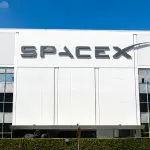
Automattic, the company behind WordPress, has issued a mandate requiring WordCamp organizers worldwide to provide social media login credentials for their events. This mandate, which cites “continuity of access” as a primary reason, has sparked concern among community members and organizers, who perceive the directive as an unnecessary overreach, especially amid ongoing disputes between Automattic and WP Engine.
Mandate for “Continuity” or Control?
The mandate follows a pattern of tension within the WordPress ecosystem, amplified by recent conflicts surrounding the role of hosting providers like WP Engine. Automattic, led by WordPress co-creator Matt Mullenweg, contends that requiring account access from event organizers helps prevent future issues with lost credentials, particularly as WordCamp organizing teams change over time. However, the directive coincides with an escalating feud between Mullenweg and WP Engine over trademark licensing and community contributions. Many WordCamp volunteers view Automattic’s request as more about control than continuity.
One incident involving WordCamp Sydney brought Automattic’s policy into sharper focus. In an email, the Sydney organizers were asked to delete social media posts lauding WP Engine’s contributions to WordPress. An Automattic employee cited a misalignment with the Community Team’s view, leading the team to ask for the removal of positive comments about WP Engine, whose sponsorship and participation were recently barred from WordPress events.
“When posting from an official WordCamp account, your team is representing both the event and the Community Team,” the email explained.”If you do not comply, you will need to step down from the organizing team.”
Some organizers perceived this as a form of censorship, aiming to restrict positive discourse around WP Engine, a company Mullenweg has criticized for allegedly benefitting from WordPress without sufficient contribution to its open-source development.
“This is not just about contributing dev back to core,” argued WordCamp Sydney organizers in defense of WP Engine. They highlighted that the hosting company’s sponsorship and support have been invaluable to the Australian WordPress community over the past decade.
Morale among the organizers who volunteered dampened. Former Automattic employee Kellie Peterson referred to the mandate as a “hostile takeover,” claiming it represents yet another attempt by Mullenweg to control the narrative around WordPress. “At each turn it fractures the community in various ways,” Peterson stated, adding that such mandates have historically led to disengagement and reduced volunteer involvement in WordPress events.
Rising Pushback and Alternative Platforms
In response, some WordCamp organizers are pushing back. They argue that requiring access to social media accounts undercuts their autonomy, especially as most of these pages have been running without any continuity issues before. Lower-than-expected ticket sales have compounded their concerns, leaving them feeling that their volunteer efforts to create a successful event have been undermined by circumstances beyond their control.
Moreover, the incident has heightened the community’s curiosity towards other places, such as Alt Ctrl Org, which guarantees a forum to break the silence on matters pertaining to WordPress and its decentralization.
As Automattic’s policy unfolds, its impact on volunteer morale and community engagement within WordPress remains a pressing question, one that may shape the future of WordPress’s open-source ethos.










